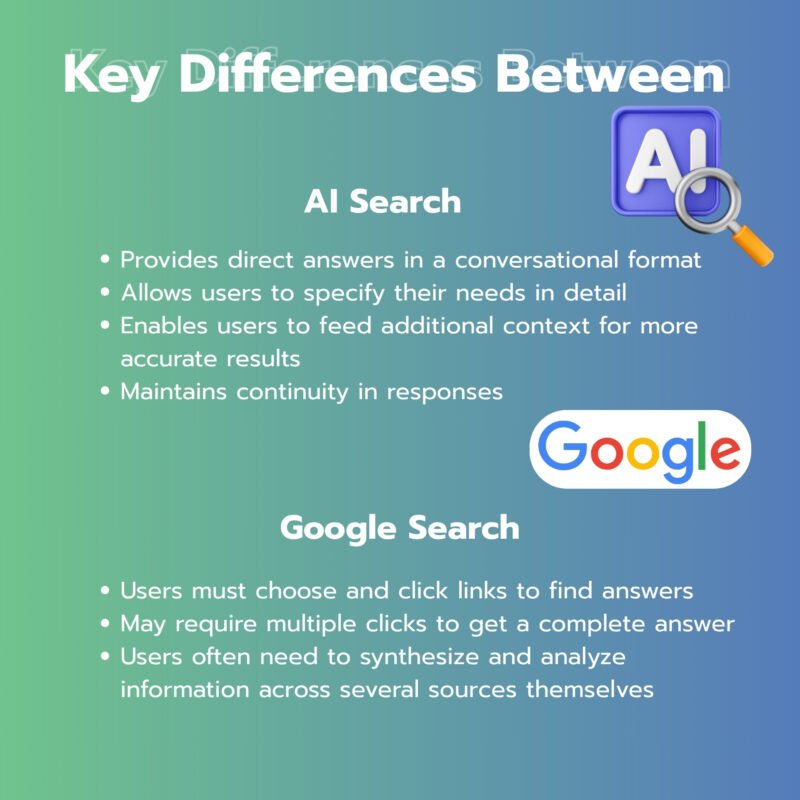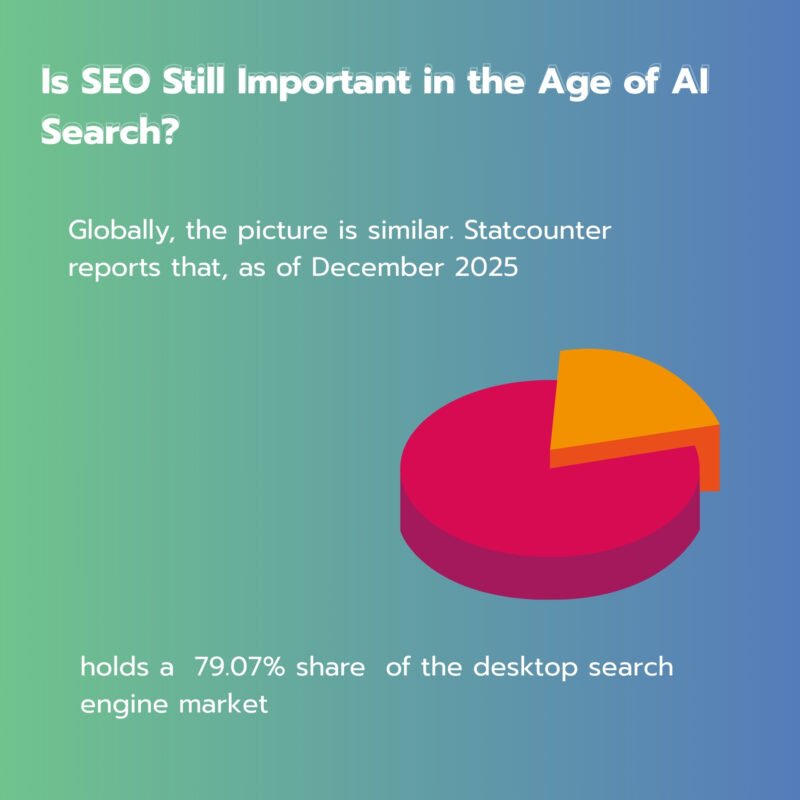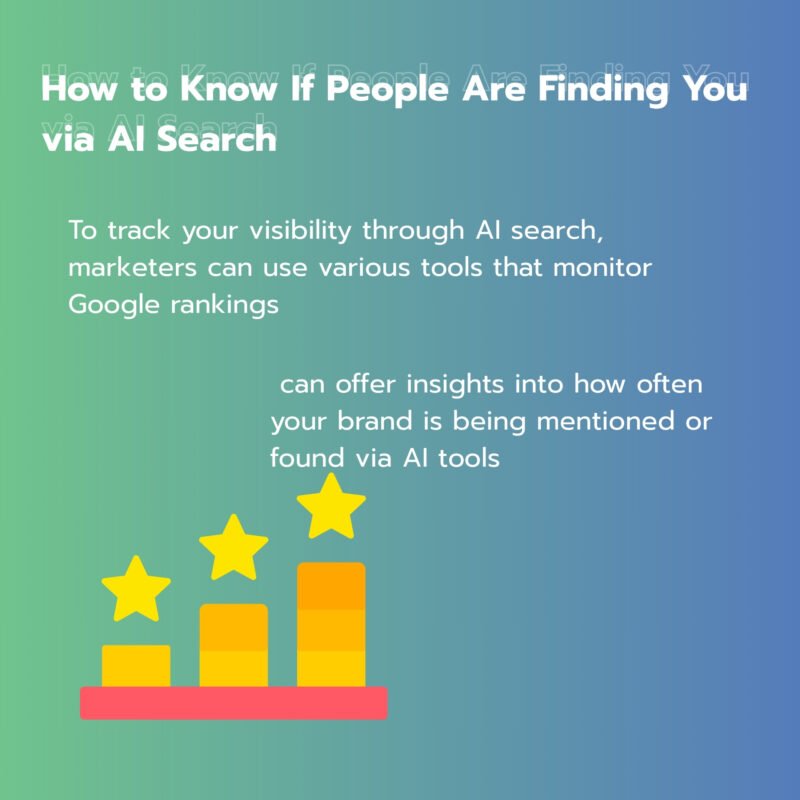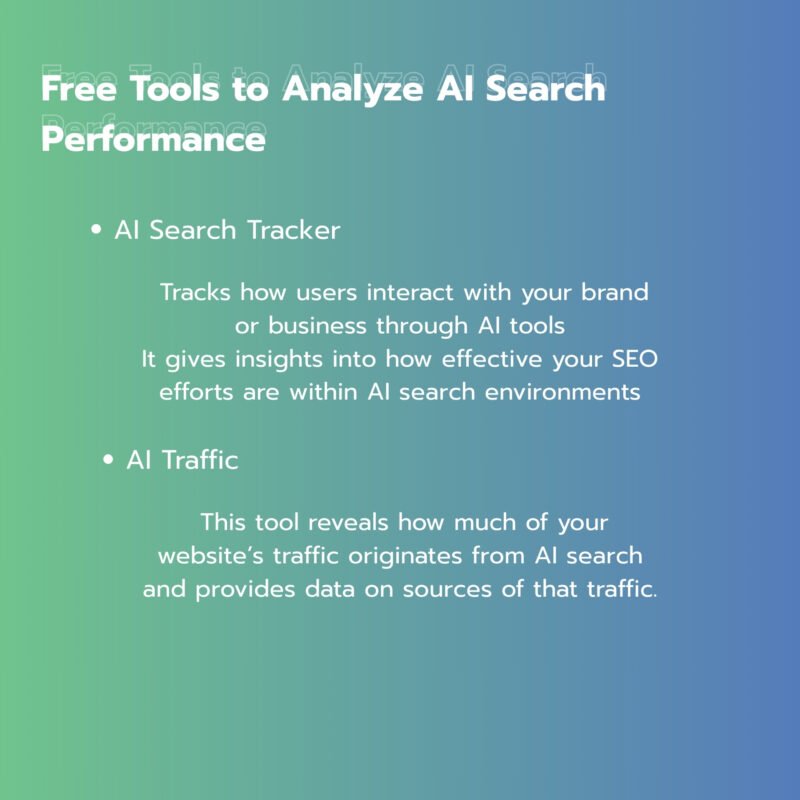
AI (Artificial Intelligence) is playing an increasingly vital role in how we work today — and that includes how people search for information online. Many users are now shifting from traditional search engines like Google, which have been dominant for years, to AI search tools. AI search provides faster and more direct answers, raising the question: can SEO still be effective in this new landscape? And how should SEO marketers adapt to these changes? Let’s explore together.
Key Differences Between AI Search and Google Search

AI Search
AI search involves querying information through AI tools such as ChatGPT, Claude, or Gemini. These tools use Natural Language Processing (NLP) to understand and respond to queries.
- Provides direct answers in a conversational format
- Allows users to specify their needs in detail
- Enables users to feed additional context for more accurate results
- Maintains continuity in responses
Google Search
Google works by displaying links from various websites in response to a keyword search. Users must click on these links to find the desired information.
- Users must choose and click links to find answers
- May require multiple clicks to get a complete answer
- Users often need to synthesize and analyze information across several sources themselves
How Search Behavior Is Changing in the AI Era
Traditionally, users would type a keyword into Google and browse through the results to find relevant information. With the rise of AI search, there is no longer a need to open multiple web pages. AI tools can draw directly from trained datasets and provide an immediate, synthesized response. This convenience is why more users are increasingly relying on AI search tools.
Is SEO Still Important in the Age of AI Search?

Despite the rise of AI search, SEO remains crucial. According to Statcounter data as of November 2024, Google still dominates the Thai search engine market with a staggering 97.11% market share, followed by Bing at 1.64%. Other engines like Yahoo, DuckDuckGo, Yandex, and Baidu hold only minor shares.
Globally, the picture is similar. Statcounter reports that, as of December 2024, Google holds a 79.07% share of the desktop search engine market, while Bing holds 11.94% and Yahoo 3%. This dominance reinforces that Google continues to lead the global search landscape, making SEO an essential part of any marketing strategy.
Furthermore, keyword searches like “What is SEO” and “SEO services” show peak interest around mid-year (especially in July and August), indicating sustained and recurring public interest in SEO. This proves that SEO remains relevant and sought-after, helping businesses connect with audiences actively looking for information or services.
How to Know If People Are Finding You via AI Search

To track your visibility through AI search, marketers can use various tools that monitor Google rankings, visibility, and traffic. For AI search specifically, tools like Brand Radar by Ahrefs can offer insights into how often your brand is being mentioned or found via AI tools like ChatGPT or Gemini. Although the Ahrefs LM Chatbot is not yet available in Thailand, tools like Brand Radar highlight how SEO performance can be tracked in AI search — much like traditional search tracking.
Free Tools to Analyze AI Search Performance

The team at NerdOptimize has developed tools like AI Search Tracker and AI Traffic to help businesses monitor AI-driven search data. These tools support Generative Engine Optimization (GEO) and can help improve strategic planning.
- AI Search Tracker (accessible via Looker Studio):
Tracks how users interact with your brand or business through AI tools like ChatGPT, Gemini, and Perplexity. It gives insights into how effective your SEO efforts are within AI search environments.
- AI Traffic (available at NerdOptimize – AI Traffic):
This tool reveals how much of your website’s traffic originates from AI search and provides data on sources of that traffic. These insights can guide better SEO strategies tailored for AI interactions.
Conclusion
While AI continues to evolve and reshape how people search for information, SEO remains a critical strategy for helping your brand appear in search results — both on traditional platforms like Google and newer AI-driven tools like ChatGPT.
In fact, AI tools still rely on sources like Google and Bing to deliver answers to users. As consumer behavior gradually shifts, SEO becomes more than just ranking on a Search Engine Results Page (SERP). It also strengthens brand credibility and visibility in AI-generated responses. That’s why SEO is still essential — now and into the future.
Source: contentshifu.com
If you want your business to reach online customers and achieve sustainable marketing results, we are happy to provide consultation on what you need.
For further inquiries, contact us at: Tel. 093 696 4498
Line OA: https://lin.ee/po8XduU E-mail: mongkontep@pkindev.com
Inverze Solutions Co., Ltd. has received numerous awards for its achievements
